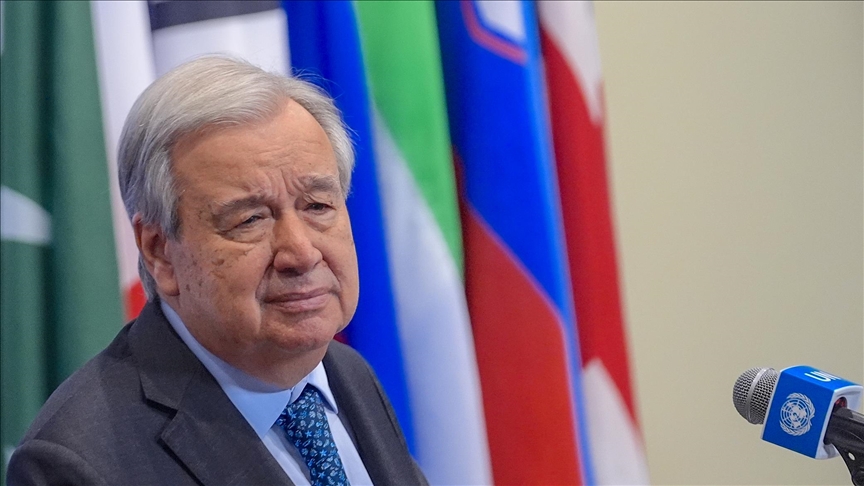
The United Nations, in calling for reform to global food systems, aptly put it that it was inhumane to use hunger as a tool of war, a call for reforms to restore human credibility amid threats of surging climate change and other headwinds capturing human integrity.
UN Secretary-General Antonio Guterres in addressing the summit on food systems, regretted the uncouth behavior by some perpetrators of war for advancing hunger as ransom for staging war, noting that conflicts remain the leading factor to hunger.
“We must never accept hunger as a weapon of war,” Guterres told delegates, including ministers of agriculture in a video conference during the opening of the second three-day-UN Food Systems Summit being hosted in Addis Ababa, Ethiopia and ends Tuesday.
The meeting has drawn people across the globe, including Heads of State from various countries.
Conflict, he contended, continues to be a leading driver of hunger, pointing to crisis zones from Gaza to Sudan and beyond where violence is pushing people into deeper levels of food insecurity.
Many international actors have accused Israel of using famine and starvation in Gaza as a weapon of war. Guterres, in a strongly worded statement, cited the systemic failures contributing to the crisis.
He argued that one-third of the world’s population cannot afford a healthy diet, while one-third of all food produced is either lost or wasted.
The hidden costs of food systems, measured in health, environmental damage, and human suffering, amount to a staggering $10 trillion per year, nearly three times the value of the food economy itself, contrasting claims of scarcity.
“This is not just a crisis of scarcity but of justice, equity, and climate,” Guterres said. The summit has attracted various notable names from the Food and Agriculture Organization (FAO) and the International Fund for Agricultural Development (IFAD).
The event focuses on assessing progress since the first such summit in 2021. Its agenda is guided by three core priorities: reflecting on national and global progress, strengthening partnerships and tracking commitments, and unlocking financing to accelerate food systems transformation.
And President of the Council of Ministers, Giorgia Meloni, who co-chaired the summit commended Ethiopia for accepting to host the summit.
She acknowledged that the event being held in Africa was vital as the continent was a protagonist in the choices and actions of the international community.
Citing concerns of food security as a priority challenge noted its delayed delayed decrease drastically, although it decreased over the last seventy years, yet global food insecurity still affects around 10% of the world’s population.
“This percentage is largely concentrated here in Africa, where one in five people suffer from hunger and do not have access to sufficient, safe, and nutritious food to lead a healthy life. “ she said.
“This situation, already complex, has been exacerbated by the crises the world is currently facing.”
She regretted the various stumbling blocks that characterized the food scarcity concerns, cited the Russia’s war of aggression against Ukraine.
The more than two-year war, she noted, disrupted economic and trade flows and processes, destabilized energy markets, and fuelled waves of inflation that hit the most fragile Nations, especially in the Global South and in Africa.
“And we know very well that when people do not have access to sufficient food or lose the means to produce it, the consequences can be catastrophic: poverty worsens, conflicts intensify, and communities become more vulnerable to violence, terrorism, or forced migration.
Food insecurity, she adds, is a political issue as well as having economic connotations. She warned players against being shortsighted in resolving the lopsided food systems.
This is systematically being done in the face of poverty, suffering, and hunger, but it deserves serious consideration as it borders on humanity.
“Food systems are an engine of growth and development, both for the most fragile nations and for those that are economically more solid.”
“At the heart of our action there must therefore be the development for the communities where we choose to focus our efforts on, as it is not enough to help those communities produce the food needed to feed the population, but it is also necessary for that food to be marketed and have access to markets, with solid and resilient production and distribution chains.”
This action, if harnessed, can help allow affected communities to prosper with the resources it possess, generating employment and stable, lasting growth.
